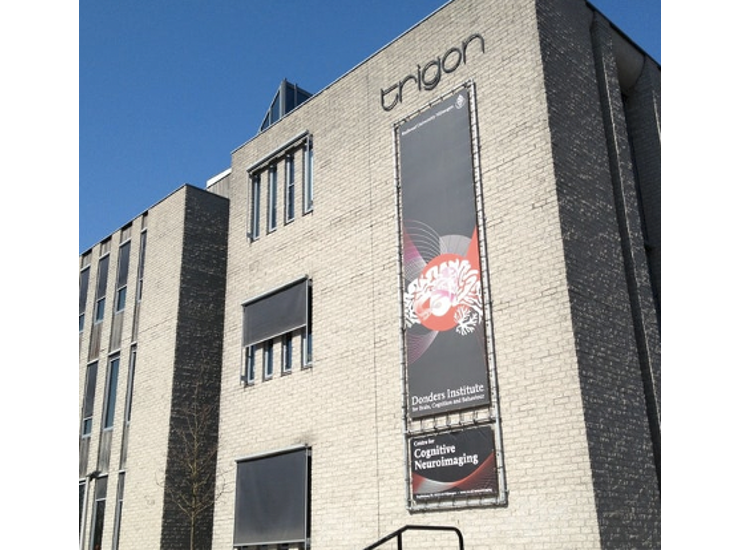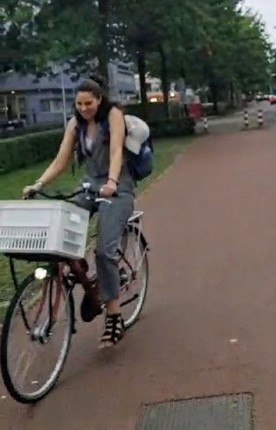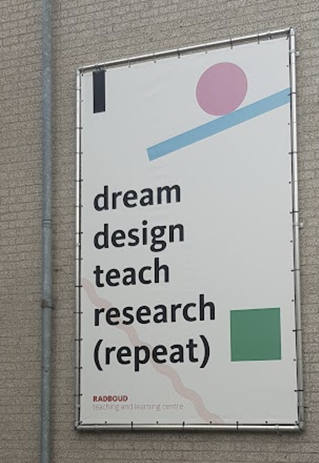
In September 2023, I was granted a LuCiD travel grant to visit a collaborator of my EEG prediction study, Yamil Vidal Dos Santos. Yamil works in the Donders Institute for Brain Cognition and Behaviour in Nijmegen. I brought with me the data we had already collected thanks to the participating families in this project. The goal of this visit was two-fold; firstly, to ensure that we agree on an analysis of the data and, secondly, to foster collaboration between our team in Liverpool and the Donders.
I promptly had to adopt a new companion for this week in Nijmegen, a bike lent to me by the institute. Given my limited bike skills, I was sceptical at first but, it was made apparent quickly that walking, given the army of bikes rushing around you, may be more dangerous that getting on a bike. So, I was trusted with “11” and, I must admit, it facilitated my stay and I ended up being sad to depart from it.

My visit was very fruitful as I met and had discussions with many of the members of the Prediction Lab. Prediction is now recognised as being a central mechanism of our brain that plays an important role in our capacity to perceive our surroundings in an efficient way; this is because our brain predicts part of the event to which it might be exposed, reducing consequently the amount of information that has to be processed from head to toe. Our project aims to verify if those processes are available to babies during the first year of life as it could support language acquisition. I had many discussions with Yamil about the data analysis and we agreed upon the agenda of the future months to come in order to finalize this project that was pre-registered in Developmental Science, an important scientific publication in the domain.
I also had the pleasure to present a preliminary analysis on what we have produced from a control adult group and our very first baby participants. In our project, we used 2 tasks to determine with confidence whether 9-month-old infants can predict the upcoming syllable of a familiar word. The first task features different vowel-like sounds and serves as a control. The responses recorded from each participant for the detection of a change of the vowel-like sound will be the marker for which we will look in our main task. The main task presents words but sometimes the syllables of these words are mixed up. We want to know if at 9 months old, infants can detect this mix-up and we will do this by searching for the marker in each participant. This triggers an interesting theoretical discussion of whether the brain mechanisms which are dedicated to spot differences in simple stimuli (as in “a is a different sound than o”), are the same as or different than the ones that enable us to differentiate more abstract differences (as the difference between dream as noun and dream as a verb). Namely the difference between the main task and the marker task in our current project. Both mechanisms are key in the ability to process speech on our day-to-day basis and need to be acquired by the infants. This discussion is still ongoing and could be the topic of future research, which could lead to further collaboration with the Predictive lab! 

